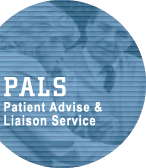How to find further informationWhat’s available on the Internet?The Internet provides a large amount of healthcare information, and more people are using it to learn about illnesses, treatments, medication and everyday family health matters. Unfortunately, the publishing of such information is not regulated and some sites are aimed at healthcare professionals and may be difficult to understand, while some sites may contain little information at all. We recommend that you use internet search engines such as google or altavista. Have a look at our links page and read through the guidelines below. Guidelines for searching the Internet for healthcare informationA recent study recommended steps to check the quality of healthcare information (details are listed at the end). They are: 1. Check the source of the informationIn the UK, websites provided by the NHS, Department of Health, Patient Advocacy groups, voluntary health and support groups, Universities and General Practices are reliable sources of information. If you access American or Australian sites, Government agencies, Universities, hospitals and doctor’s offices are considered reliable sources. 2. Check the purpose of the websiteThe site may be primarily for healthcare professionals, academics or patients – it is important to find one that covers issues relevant to you. 3. Check if the site is regularly updatedThe site may not be regularly reviewed – if it does not, the information it provides may be out of date or treatments listed may be no longer in use. 4. Remember that all links have disclaimersIf a website has links to other useful organisations, remember that the site providing the links are not responsible for the site at the other end of the link. Look for a site that provides links to reliable sources (for example, those listed in 1). Authors of the Study: Oermann, M. H. & Pasma, J., 2001, Evaluation by Consumers of Quality Care Information on the Internet, Journal of Nursing Care Quality, 2001: 15(3): 50-58, Aspen Publishers Inc. Voluntary ServicesThe West Suffolk Borders Primary Care Group publishes a directory of charities, voluntary organisations, community and social groups in the area. If you wish to receive a copy of the directory please contact: West Suffolk Borders Primary Care Group Health Promotion Resources Thingoe House, Cotton Lane Bury St Edmunds Suffolk IP33 1YJ The PALS office has a copy of the directory and we are happy to provide you with addresses for Voluntary Services if you wish. Library ServicesWest Suffolk Hospital Clinical Resource Centre & LibraryThe Library is open to private subscribers and members of the healthcare professions, click here for further information. Public LibrariesSome Public Libraries are able to offer assistance but the services they provide vary between regions. Contact your local library to find out how they can help you. National Electronic Library for Health (NELH)The National electronic Library for Health (NeLH) is a national information library resource. Patients and the Public can access reliable, up to date information through www.nhsdirect.nhs.uk. Access to Healthcare ProfessionalsIf you visit a healthcare professional and find later you cannot remember or understand something related to your health, you should always be able to ask about it again. · If you are an inpatient in a hospital, ask your nurse or doctor to explain things to you again. They will not mind, and will be happy to explain. · If you are an outpatient in a hospital, you can call the PALS office and ask them to arrange a telephone appointment with a nurse or doctor who will be able to help you. · If your health professional is based in a doctor’s surgery, call the receptionist and explain your problem. If it is a common enquiry, they may be able to help you directly, or will pass you to someone who can.
|
||||||||||
|
||||||||||

